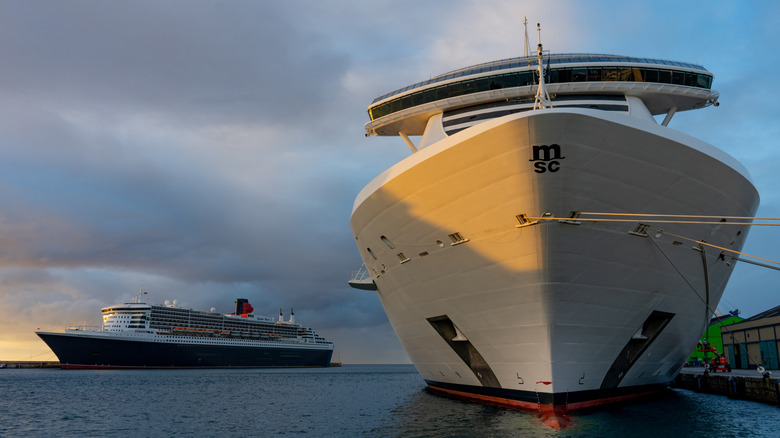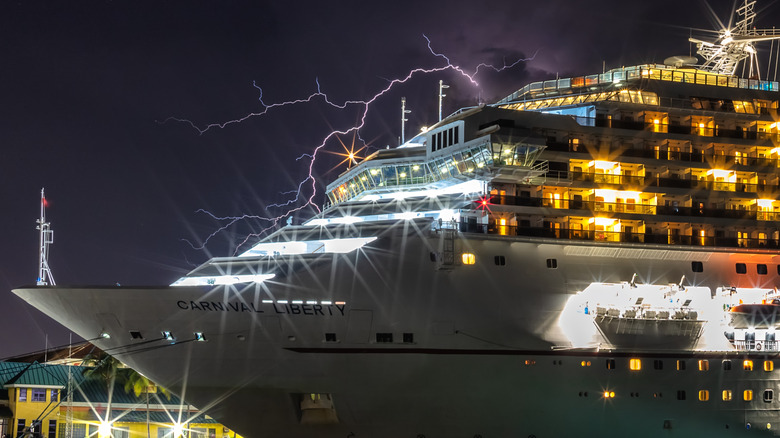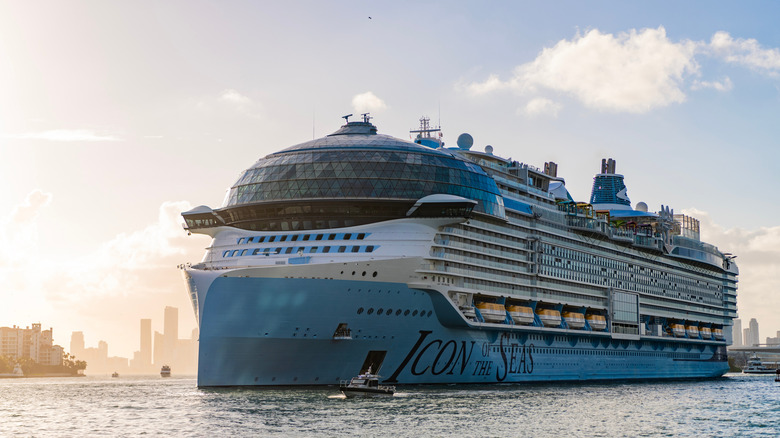The Most Affordable Season For A Cruise To The Caribbean Is A Great Way To Save Money With One Major Catch
In 2024, 34.2 million people cruised in the Caribbean, according to the Caribbean Tourism Organization. For comparison, the entire population of the region clocks in at about 44 million. With numbers like that, you might think cruise lines could afford to offer a few more budget-friendly trips, but with prices going up and loyalty perk increasingly favoring high spenders, leaving the rest unhappy, that's clearly not the case. Industry insiders are quick to cite rising costs or supply and demand, but, in reality, they're soaring because people are still willing to pay. So, is there a way to beat the surging costs? Yes, but there's a big catch: You'll need to sail the Caribbean during hurricane season.
While hurricane season is a huge factor, the price drop at this time of year is twofold. After Labor Day — typically the first week in September — travel demand declines until its resurgence around Christmas. So, while hurricane season technically lasts from June 1 to November 30, honing in on the shoulder months of September, October, and November can provide the best savings.
But are those savings worth the risk of a ruined trip? Is it even safe to sail during hurricane season? Thankfully, the answer is almost always "Yes." That's not to say you won't come up against some problems, but with some simple advanced preparation and a willingness to accept sudden changes, there's no reason to avoid sailing at this time of year.
Is saving money worth cruising the Caribbean in hurricane season?
Much of the drop in cruise demand at this time of year centers around fears of hurricanes or cancellations. In reality, it's quite normal for cruises to depart even when a hurricane is in the Caribbean. The biggest risk for a cancellation comes if the storm is making landfall at or near the departure port. Even then, sailings are often only postponed for a few days.
Looking at the realities of hurricanes and how cruise lines handle these weather systems should alleviate any concerns. First, hurricanes don't appear overnight. They are tracked as they form, and cruise lines are aware of the potential as early as two weeks out. Storm paths can now be predicted up to five days in advance. If a cruise ship receives reliable weather information, it can and will adjust its itinerary. For example, a western Caribbean cruise may switch to an eastern itinerary, or divert to a hurricane-safe Caribbean island mid-sailing if the risk looks high.
It's also vital to remember that hurricanes are usually about 300 miles wide, while the Caribbean spans more than 1 million square miles. That's a tiny portion of the sea to avoid for a highly advanced cruise ship. Even in the worst-case scenario, a cruise ship can comfortably outrun the speed of a hurricane, adding to the overall safety. No cruise ship has been sunk or sustained significant damage in the Caribbean — these things are built to deal with the worst the ocean can throw at them. The downsides to cruising during this time of the year typically come in the form of unpredictable weather or choppier seas — both valid concerns if you want to lie on a beach or are prone to seasickness. But if you're comfortable risking less sunshine, the savings could be well worth it.
Can you protect your more affordable cruise?
You can definitely help protect some of your costs in a worst-case scenario, but it depends on a number of factors. For example, if your cruise itinerary is overhauled because of weather, you're likely to be reimbursed only the port fees for the places you would have visited. If your trip is completely canceled, you should be entitled to a full refund. Cruise lines will generally wait until the last minute before fully cancelling anything, though, and canceling on your own will likely make you ineligible for full reimbursement.
The best thing to do during in hurricane season — and at any other time of year — is to purchase cruise insurance. While policies vary, they can cover everything from cancellations and delays to missed flight connections and baggage damage. Some even offer "cancel for any reason" policies, which can help reimburse some non-refundable costs on any cruise.
In general, opting to cruise in the affordable shoulder and hurricane seasons should have little impact on your overall enjoyment. But insurance can help ease any lingering concerns about costs. If you're still not comfortable sailing at this time of year, try looking at Royal Caribbean's smallest cruise, which is a more budget-friendly option.


